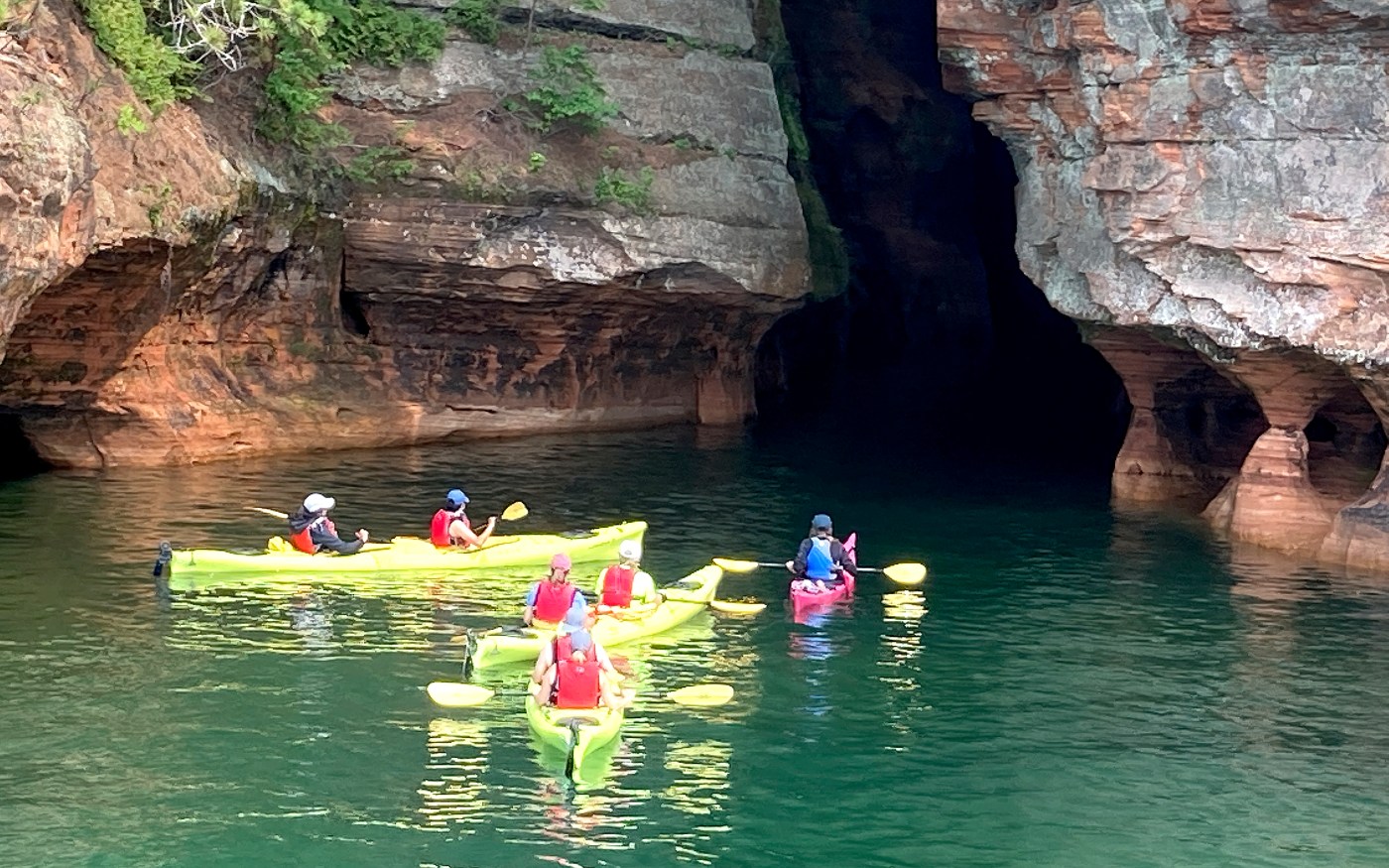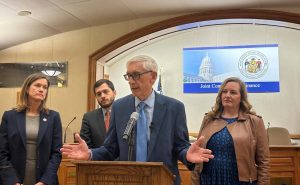
National bill proposes turning Apostle Islands into National Park
A bill introduced by U.S. Rep. Tom Tiffany seeks to turn the Apostle Islands National Lakeshore into a national park, a move that would ban hunting on all but one island.
While hunting and trapping are allowed throughout most of the national lakeshore’s 21 islands in Lake Superior and 12 miles of mainland Bayfield Peninsula coastline, the bill introduced last week by the Republican representing Northwestern Wisconsin explicitly bans hunting if the area were to become a national park.
Unlike national lakeshores and other National Park Service-administered land, hunting is rarely allowed in national parks. Instead, the bill would remove Sand Island from its national lakeshore designation and designate it the Sand Island National Preserve instead of including it in the proposed national park. Therefore, hunting would be allowed on the approximately 3,000-acre island.
Fishing would be unaffected by the bill.
“The Apostle Islands are one of Wisconsin’s true crown jewels and deserve to be recognized as the state’s first National Park,” Tiffany said in a July 24 news release. “This prestigious designation would not only strengthen conservation efforts, bolster the local economy, and create new job opportunities, but would also ensure lasting environmental and economic security to our region for generations to come.”
Two issues
Frank Lands, the National Park Service’s deputy director for operations, testified during a July 24 hearing of the U.S. House of Representatives Subcommittee on Federal Lands that the bill was not introduced in time for the department to take a position.
Lands said two issues need to be addressed. The first is to clarify the relationship between the proposed Apostle Islands National Park and Sand Island National Preserve.
The other, Lands said, “is the need for reinforcement of the treaty rights of the Ojibwe tribes. Part of the Lakeshore is within the (Red Cliff Band of Lake Superior Chippewa) tribal reservation and the remaining land are areas ceded by the treaty with the reservations to hunt, trap and gather.”
Charlie Rasmussen, a spokesperson for the Great Lakes Indian Fish and Wildlife Commission, said Ojibwe tribes were tracking the proposal.
“The Apostle Islands are an important hunting and fishing region for Ojibwe tribes,” Rasmussen said. “Any action that may infringe on treaty rights and harvesting is a concern.”
The Red Cliff Band did not respond to request for comment.
Sailboats rest at anchor at sunset on a Aug. evening, just off the shore of Stockton Island in the Apostle Islands National Lakeshore near Bayfield. (Sam Cook / Duluth News Tribune)
Lakeshore designation selected to allow hunting
Tia Nelson is the daughter of the late U.S. Sen. Gaylord Nelson, a Democrat from Wisconsin who is credited with establishing the Apostle Islands National Lakeshore in 1970 and Earth Day. Nelson said her father spent years consulting with people in and around the Apostle Islands, and access to hunting was part of the reason it became a national lakeshore instead of a national park.
“That surprised me considering Tiffany’s long commitment to public access for hunting,” Nelson said of the proposal. “This will clearly disenfranchise the sportsmen and women.”
Caroline Briscoe, a spokesperson for Tiffany’s office, said only three deer were harvested from the Apostle Islands between 2015 and 2022 and that existing treaty rights would remain.
Tourism concerns
State Sen. Romaine Quinn, R-Rice Lake, whose district includes Bayfield and the Apostle Islands, said a national park would benefit the area.
“Increased tourism will create new job opportunities, stimulate economic growth and support the livelihoods of many in the Bayfield area and beyond,” Quinn testified in the subcommittee hearing Wednesday.
But Madelaine Rekemeyer, a member of the Bayfield County Board of Supervisors, said the area isn’t hurting for more tourists.
“I’m not against economic development,” Rekemeyer said. “We will be increasing tourism based on current economic development towards a model that currently has many unintended consequences.”
For example, Rekemeyer said, there’s a shortage of housing, driven in part by more short-term rentals for tourists, and area workers can’t find places to live.
The Sand Island Lighthouse is located at the northern tip of Sand Island on Lake Superior in Bayfield County, Wisconsin. The light was first lit in 1881. (Dan Williamson / Duluth News Tribune)
Several Bayfield tourism and chamber officials expressed those concerns in a Wisconsin Public Radio article Thursday.
There’s still more to learn, Rekemeyer said. After all, the board only became aware of the proposal last week, she said.
“Everyone agrees this was just kind of sprung up on us,” Rekemeyer said. “Listening to the hearing yesterday in Washington, D.C., it does look like a conversation will continue, and for that we’re grateful.”
U.S. Rep. Pete Stauber, a Republican from Hermantown representing Minnesota’s 8th Congressional District, and the other four members of Wisconsin’s delegation in the U.S. House co-sponsored the bill.
Related Articles
Skywatch: Perseids, planets and more
Melanin in Motion hosts bike ride and more this weekend in Minneapolis
Minnesota Zoo to celebrate Treetop Trail’s first anniversary
Skywatch: Lunar landing memories
Meet the Minnesota DNR pilot who rescued Curtain Falls survivors


